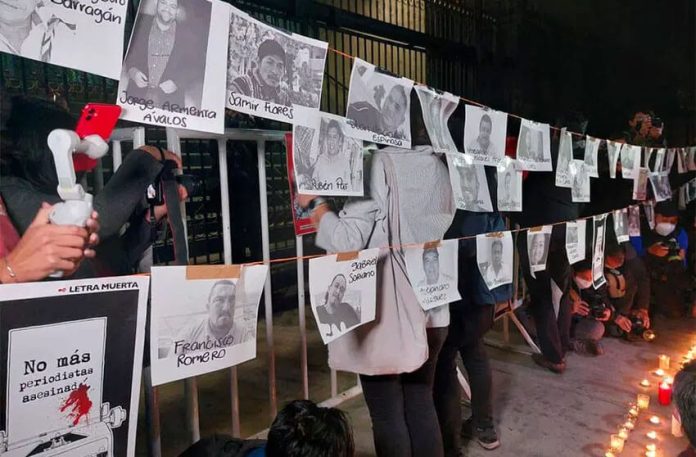The Committee to Protect Journalists (CPJ) has condemned the federal government’s “inaction” after the murder of yet another journalist last week.
The body of Juan Carlos Muñiz was found with multiple gunshot wounds in a taxi in Fresnillo, Zacatecas, last Friday. Muñiz was a reporter for Fresnillo news website Testigo Minero and other outlets, as well as a taxi driver.
He is the eighth media worker to be killed this year, at least six of whom were practicing journalists.
The CPJ, a New York-based non government organization, said Wednesday that authorities must immediately and thoroughly investigate Muñiz’s murder and determine whether he was killed because of his journalism. Federal government communications coordinator Jesús Ramírez has already said that a through investigation will be carried out and that the crime will not go unpunished.
CPJ Mexico representative Jan-Albert Hootsen said that the “brutal slaying” of Muñiz extended Mexico’s “staggering streak of journalist killings in 2022.”
The murder is “a stark example of the extreme risk that local reporters covering politics and crime face on a daily basis,” he said.
“The Mexican government’s inaction allows the impunity that fuels these attacks to fester and cement its abysmal status as the hemisphere’s deadliest country for journalists.”
President López Obrador has also been accused of fomenting hostility toward journalists and the media more broadly via his repeated verbal attacks on critical press at his morning news conferences.
On Wednesday he took aim at television and radio presenter Azucena Uresti, criticizing her for describing Mexico City as a “walled city” due to the barricades installed around the National Palace, Metropolitan Cathedral and other buildings and monuments to protect them during Tuesday’s International Women’s Day march.
López Obrador said it was clear that Uresti “doesn’t like us” and will use anything she can against the government. He mocked her for broadcasting from the “walled” headquarters of the Milenio media group and compared her to other journalists he frequently derides, including Carlos Loret de Mola, as well as foreign newspapers he regards as mouthpieces of conservatism and private companies.
“They defend vested interest groups and they’re against governments that seek to combat corruption and help the poor. They’re media outlets of the oligarchy, to say it clearly – those here and those there [in the United States and other foreign countries],” López Obrador said.
No señor Presidente @lopezobrador_
yo no recibo consigna, no estoy a favor de grupos de intereses creados. Le pido, de la manera más respetuosa, mostrar las pruebas de sus dichos.— Azucena Uresti (@azucenau) March 9, 2022
“If you look at The New York Times, The Washington Post, The Wall Street Journal, Financial Times, El País from Spain, they’re all the same,” he said.
Uresti responded to the president on Twitter, asserting that she doesn’t take orders and isn’t in favor of any vested interests.
“I ask you, in the most respectful way, to show proof of your statements,” she wrote.
With reports from El Universal
